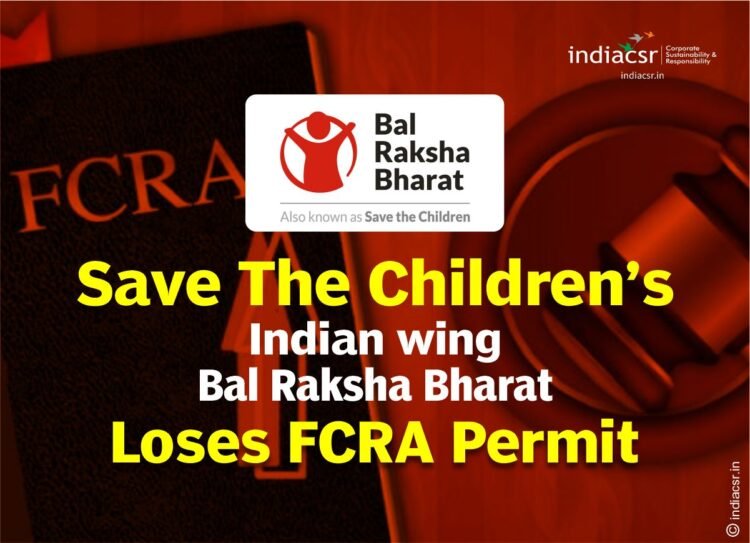NEW DELHI (India CSR): In a recent move that has sparked debates among civil society, the Indian government has withdrawn the Foreign Contribution Regulation Act (FCRA) permit for U.K.-based NGO Save The Children’s Indian wing, Bal Raksha Bharat. The decision stems from last year’s fundraising campaign on malnutrition, which the government claims was already being actively addressed through its programs. This piece sheds light on the situation, examining the facts and reactions from both the government and the NGO.
The NGO and Its Mission
As a prominent child rights organization, Save The Children operates in 116 countries, focusing on health, education, hunger, and aiding vulnerable children in conflict zones. Its Indian offshoot, Bal Raksha Bharat, has been active across 16 Indian States since 2008. Last year, the organization’s campaign on malnutrition came under scrutiny, with the government arguing that the issue was already being “vigorously pursued” through state-run initiatives.
The Government’s Stance
The Ministry of Women and Child Development objected to Bal Raksha Bharat’s fundraising drive, citing government schemes actively targeting the issue. The NGO’s request for renewal of its FCRA licence was consequently rejected, with the order being made public on the Ministry of Home Affairs’ website.
Bal Raksha Bharat’s Response
Caught off guard by the non-renewal of the FCRA application, a spokesperson for Bal Raksha Bharat expressed surprise but assured that they would work closely with the government to resolve the matter. They further committed to continuing critical services to the community and children.
FCRA Registration and NGO Landscape
The FCRA registration, essential for receiving foreign funds, has been cancelled for 1,827 NGOs in the last five years, including prominent names like Oxfam International. The latest deadline for renewal is September 30, 2023. This reflects a broader pattern of government oversight of NGOs.
Accusations and Reactions
On November 2, 2022, the Ministry of Women and Child Development called the Save The Children’s campaign “misleading” and sought action against “false information.” Furthermore, the National Commission for Protection of Child Rights raised objections to the portrayal of children in “deplorable conditions,” warning that it might violate the Juvenile Justice Act, 2015.
Conclusion
This withdrawal of the FCRA permit has brought attention to the complex relationship between NGOs and government policies. While the government asserts the need to ensure alignment with national initiatives and legal compliances, NGOs like Bal Raksha Bharat argue for their role in societal development. The incident underscores the critical need for transparent dialogue and collaboration to ensure that child welfare remains at the forefront.
(India CSR)







